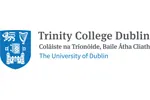About Ecumenical Studies, MPhil, Graduate Diploma - at Trinity College Dublin
Ecumenical Studies derives its name from the Greek word oikoumene, meaning the one, inhabited earth. A plurality of religions and value systems share this one inhabited earth, generating not only conflict and misunderstanding, but also resources and motivations to understand and transcend conflict. From a perspective informed by Christian theology, Ecumenical Studies focuses on three key arenas of dialogue in order to promote a critical understanding of relationships within and between traditions - dialogue within the Christian traditions, with other religious traditions, and with others committed to a study of the ethical dimensions of political engagement.
Programme ContentStudents participate in five courses for assessment purposes, and submit essays in four of these. Students undertake three placements during their studies, and, in addition, there is an opportunity to pursue fieldwork in Northern Ireland. In this research-driven programme, students are also encouraged to participate in staff-led research seminars, in which there is ample opportunity to engage in a shared and critical pursuit of scholarship
AssessmentThe assessment is comprised of four 5,000-6,000 word essays (or equivalent) to be completed by 1 May, and an 18-20,000 word thesis to be completed by 15 September.
All students are registered on a common Masters programme and follow the same assessment procedures for the four required essays: students write an essay for each of the three Core Courses, and one essay for an Elective Course. A Postgraduate Diploma is also available.
Subject to satisfactory performance in the four essays, students may proceed to submission of a dissertation for the M.Phil. degree. Students who do not reach that standard, but who nonetheless are judged by the Court of Examiners to have reached a satisfactory level of performance, may be recommended for the award of the Postgraduate Diploma, without further assessment.
Admission RequirementsApplicants should normally have a second class honors degree or higher in Theology or Religious Studies or an equivalent degree in a cognate discipline. Students not meeting these criteria may exceptionally be considered at the discretion of the Dean of Graduate Studies.
Applications are reviewed on an ongoing basis from 1 January in the year of admission. The closing date for this programme is 30 June. Applications will be considered after that date only if places remain available.


